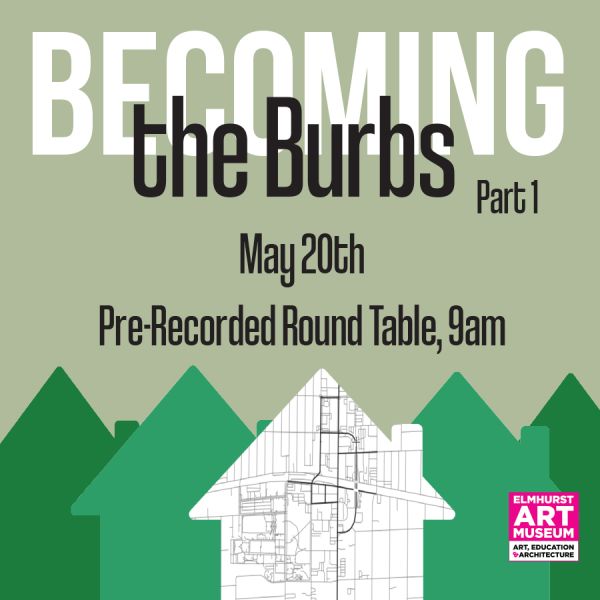
Becoming the 'Burbs: Part 1
Join us for a pre-recorded program featuring historians discussing the creation of the suburbs to complement our current exhibition "In Focus". Exhibition Manager Sarah Cox is joined by five scholars who explore ways the suburbs of Chicago were created including the Great Migration, segregative practices, and continued issues of equity.
A recording of this free program is now available on our Museum from Home page.
Urban historian and American Studies scholar Elaine Lewinnek outlines early developments of Chicago suburbs starting in the 1880s and how the population of Elmhurst fits within these trends. She is Professor of American Studies at California State University-Fullerton.
Amanda Seligman, Professor at University of Wisconsin-Milwaukee, discusses different discriminatory practices, especially restrictive covenants and blockbusting, in the Chicago area. Her discussion includes Lorraine Hansberry, the author of Raisin in the Sun.
Mary Barr, professor and author of “Friends Disappear: The Battle for Racial Equity in Evanston”, speaks about her research on fair housing and segregation in the northern suburbs during the 1950s and 60s. Barr is Assistant Professor of Sociology at Kentucky State University.
Urban studies and suburban history scholar Ann Keating examines the impact of Dr. Martin Luther King and others during the Chicago Freedom Movement had in Chicagoland suburbs, specifically DuPage. Keating is the Dr. C. Frederick Toenniges Professor of History at North Central College in Naperville.
Mike Amezcua, professor and author of the forthcoming “Making Mexican Chicago: From Postwar Settlement to the Age of Gentrification”, discusses how the Hispanic population was affected by unfair housing practices in the 1940s to the 90s. Amezcua is Professor at History at Georgetown University, Washington D.C.
The exhibition “In Focus” and related programs are generously sponsored by the JCS Arts, Health and Education Fund of DuPage Foundation and David C. & Sarajean Ruttenberg Arts Foundation.

